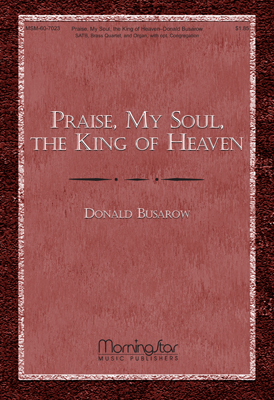- |
User Links
Alleluia, song of gladness

Alleluia, song of gladness, Voice of joy that cannot die
Translator: J. M. Neale (1861)Published in 93 hymnals
Printable scores: PDF, MusicXMLAudio files: MIDI, Recording
Translator: J. M. Neale
 John M. Neale's life is a study in contrasts: born into an evangelical home, he had sympathies toward Rome; in perpetual ill health, he was incredibly productive; of scholarly temperament, he devoted much time to improving social conditions in his area; often ignored or despised by his contemporaries, he is lauded today for his contributions to the church and hymnody. Neale's gifts came to expression early–he won the Seatonian prize for religious poetry eleven times while a student at Trinity College, Cambridge, England. He was ordained in the Church of England in 1842, but ill health and his strong support of the Oxford Movement kept him from ordinary parish ministry. So Neale spent the years between 1846 and 1866 as a warden of Sackvi… Go to person page >
John M. Neale's life is a study in contrasts: born into an evangelical home, he had sympathies toward Rome; in perpetual ill health, he was incredibly productive; of scholarly temperament, he devoted much time to improving social conditions in his area; often ignored or despised by his contemporaries, he is lauded today for his contributions to the church and hymnody. Neale's gifts came to expression early–he won the Seatonian prize for religious poetry eleven times while a student at Trinity College, Cambridge, England. He was ordained in the Church of England in 1842, but ill health and his strong support of the Oxford Movement kept him from ordinary parish ministry. So Neale spent the years between 1846 and 1866 as a warden of Sackvi… Go to person page >Text Information
| First Line: | Alleluia, song of gladness, Voice of joy that cannot die |
| Title: | Alleluia, song of gladness |
| Translator: | J. M. Neale (1861) |
| Meter: | 8.7.8.7.8.7 |
| Source: | Latin Hymn, 11th Cent. |
| Language: | English |
| Copyright: | Public Domain |
Notes
Alleluia, dulce carmen. [Week before Septuagesima.] The earliest form in which this hymn is found is in three manuscripts of the 11th century in the British Museum. From a Durham manuscript of the 11th century, it was published in the Latin Hymns of the Anglo-Saxon Church (Surtees Society), 1851, p. 55. The text is in Daniel, i. No. 263, and with further readings in iv. p. 152; and in the Hymnarium Sarisuriense, 1851, p. 59. [Rev. W. A. Shoults, B.D.]
Translations in common use:—
3. Alleluia! song of sweetness. Voice of joy, eternal lay. By J. M. Neale. It appeared in the first edition Mediaeval Hymns, 1851, p. 130, in 4 stanzas of 6 lines, and was "corrected for the Hymnal Noted." Mediaeval Hymns, 2nd ed. p. 184), where it was given in its new form, in 1852, No. 46, and again in the 2nd ed. of the Mediaeval Hymns, 1863. This translation equals in popularity that of Chandler, but it is more frequently and extensively altered. Without noticing minor instances, we find the following: "Alleluia, song of sweetness,Voice of joy that cannot die" in Hymns Ancient & Modern, 1861 and 1875, and many others. "Hallelujah! song of gladness, Voice of joy that cannot die" in Thring's Collection, 1882, &c. Of these altered forms of Neale's text, that of Hymns Ancient & Modern, is most frequently adopted.
--Excerpts from John Julian, Dictionary of Hymnology (1907)


 My Starred Hymns
My Starred Hymns







